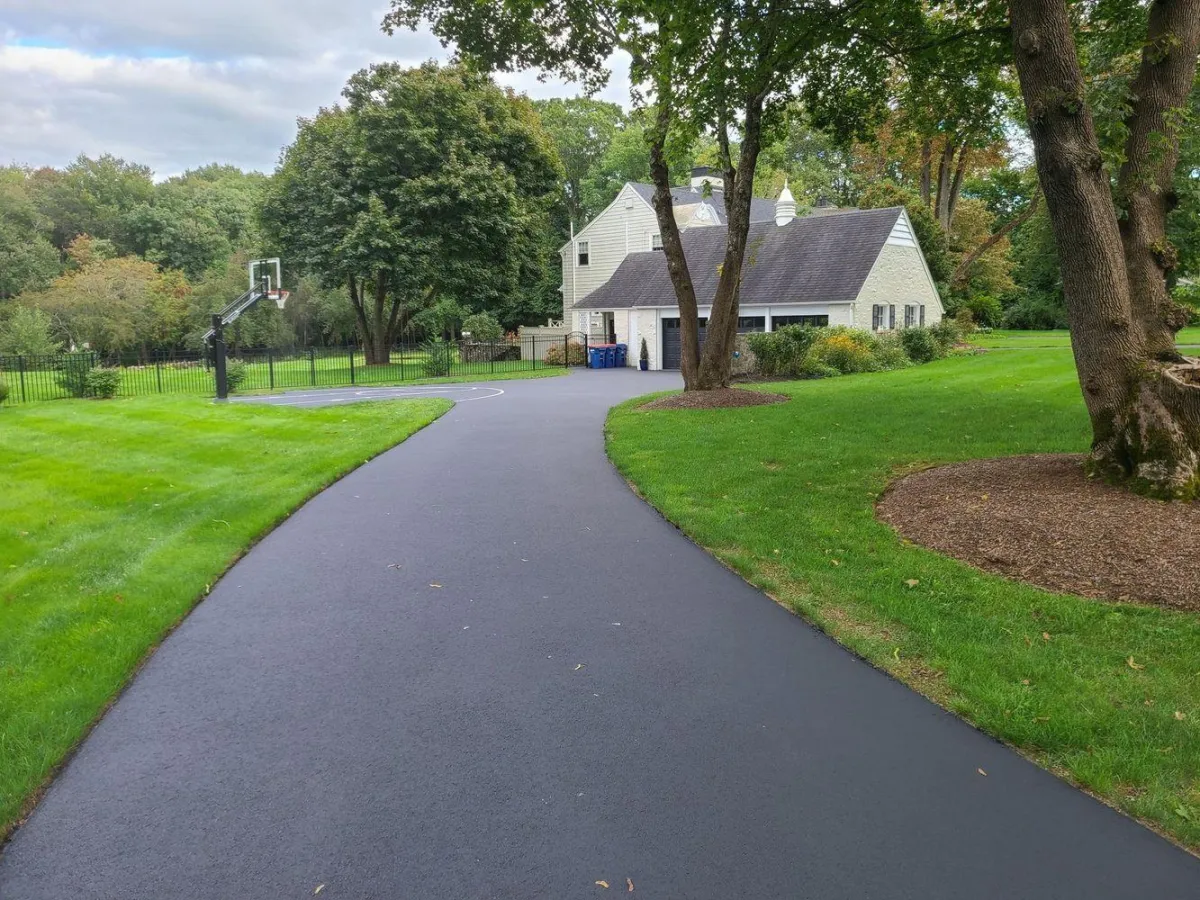Blog

How Our Team Approaches Private Road Paving for Subdivisions
Building Roads That Build Communities
When a new subdivision takes shape, the roads are the backbone of the neighborhood. They connect homes, shape the landscape, and set the tone for the entire development. But building them right takes more than asphalt and machinery — it takes planning, precision, and local expertise.
At All-Phase Asphalt Inc., we’ve been paving private roads for subdivisions across Southeastern Massachusetts and Rhode Island since 1994. Our approach combines engineering know-how with craftsmanship honed over decades, ensuring that every road we build meets the highest standards of safety, function, and appearance.
This blog breaks down our method — how we evaluate, plan, and execute private road paving projects designed to last for decades.
Understanding Private Road Paving for Subdivisions
Private roads differ from public ones in ownership, purpose, and long-term care. They’re typically built by developers or homeowners’ associations to serve a specific community rather than the general public.
That means the quality of construction directly affects homeowners — from daily comfort and property values to long-term maintenance costs. Because private roads often see a mix of light passenger vehicles and service trucks, proper base preparation and asphalt depth are critical.
What Makes Private Road Paving Unique
Custom engineering: Roads must match the subdivision’s layout, slope, and drainage design.
Local compliance: Each town or county may have specific standards for private roads.
Future maintenance: Developers and HOAs are responsible for upkeep, so durability matters more than ever.
When All-Phase Asphalt takes on a private road project, we work closely with engineers, surveyors, and developers from day one to ensure every step aligns with long-term performance goals.
Our Process: From Planning to Perfection
Every successful road begins long before the first truck rolls in. Here’s how our team approaches each subdivision paving project:
1. Site Evaluation and Planning
We start with a comprehensive site assessment, reviewing soil stability, drainage conditions, and grading plans. In Southeastern Massachusetts, clay-heavy soils and uneven terrain are common challenges. We identify these early to prevent settlement or cracking later.
We also coordinate with the developer’s engineer to verify the road layout, curb placement, and utility crossings — ensuring that everything lines up before construction begins.
2. Excavation and Base Construction
The strength of any road depends on its foundation. Our crews excavate to the required depth and install a crushed stone base, compacted in layers for stability.
In subdivision paving, we often use a 6- to 12-inch base, depending on traffic load and soil type. Proper compaction prevents shifting, rutting, and water intrusion — the most common causes of early pavement failure.
3. Drainage Design and Grading
Water is asphalt’s worst enemy. That’s why we place special focus on grading and drainage.
We establish proper slopes to direct runoff into catch basins or swales, preventing puddling and freeze-thaw damage. Our team also ensures driveways, intersections, and cul-de-sacs transition smoothly into the main roadway, maintaining both function and aesthetics.
4. Asphalt Application
Once the base is prepared, we apply asphalt in two layers:
Binder course: A thicker, structural layer with coarser aggregate.
Surface course: A finer, smoother top layer that provides traction and visual appeal.
Each layer is compacted to the proper density using vibratory rollers for a seamless, uniform finish. We use hot-mix asphalt, ensuring long-term flexibility and strength — essential for New England’s fluctuating climate.
5. Finishing Touches and Quality Control
After paving, our team handles all finishing work, including curbing, berm installation, and line striping where required.
We perform a detailed inspection to verify compaction, smoothness, and drainage performance. Our project managers also walk developers through the completed work, providing maintenance recommendations and warranty coverage details.
Key Considerations for Developers and HOAs
Private road paving isn’t just about construction — it’s also about smart long-term planning. Here are a few things developers and associations should keep in mind before breaking ground:
Budget for maintenance: Regular sealcoating every 3–5 years can double pavement life.
Plan for heavy traffic: Delivery trucks and construction equipment demand stronger bases.
Include stormwater management: Proper grading and catch basins reduce costly water damage.
Set clear ownership: Determine whether the HOA or municipality will handle future repairs.
Schedule inspections: Annual evaluations help spot cracks, edge wear, or drainage issues early.
By planning ahead, subdivision managers can reduce costs and extend the life of their roads — protecting residents’ investments.
FAQs: Private Road Paving and Maintenance
How long does it take to pave roads in a new subdivision?
Depending on size, complexity, and weather, paving typically takes a few days to a couple of weeks once site preparation is complete.
What’s the ideal asphalt thickness for private roads?
Usually 2–3 inches of binder and 1–1.5 inches of surface asphalt, but this varies based on soil conditions and expected traffic.
Can private roads be built in phases?
Yes. Developers often pave the binder course during early construction, then apply the surface layer after heavy equipment use ends to avoid damage.
What maintenance do private roads need?
Regular sealcoating, crack filling, and drainage inspections every few years keep surfaces smooth and extend life expectancy.
How does winter affect private roads in Massachusetts?
Freeze-thaw cycles cause expansion and contraction that can crack asphalt. Proper base preparation and drainage design minimize this risk.
Building Roads That Last
At All-Phase Asphalt Inc., we believe subdivision roads are more than infrastructure — they’re an investment in the community’s future. Our approach to private road paving emphasizes durability, safety, and long-term value.
With nearly three decades of experience in Seekonk, MA, and surrounding areas, we combine quality materials, advanced techniques, and local expertise to deliver smooth, reliable roads that stand the test of time.
Our Services
Helpful Links
License: RI 13328
© 2025 All Rights Reserved | All-Phase Asphalt Inc
